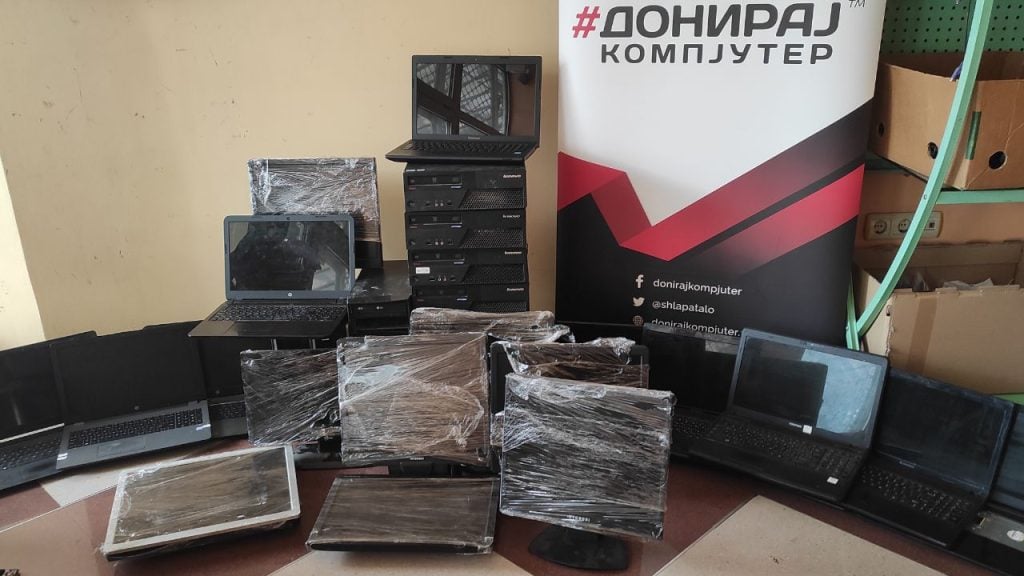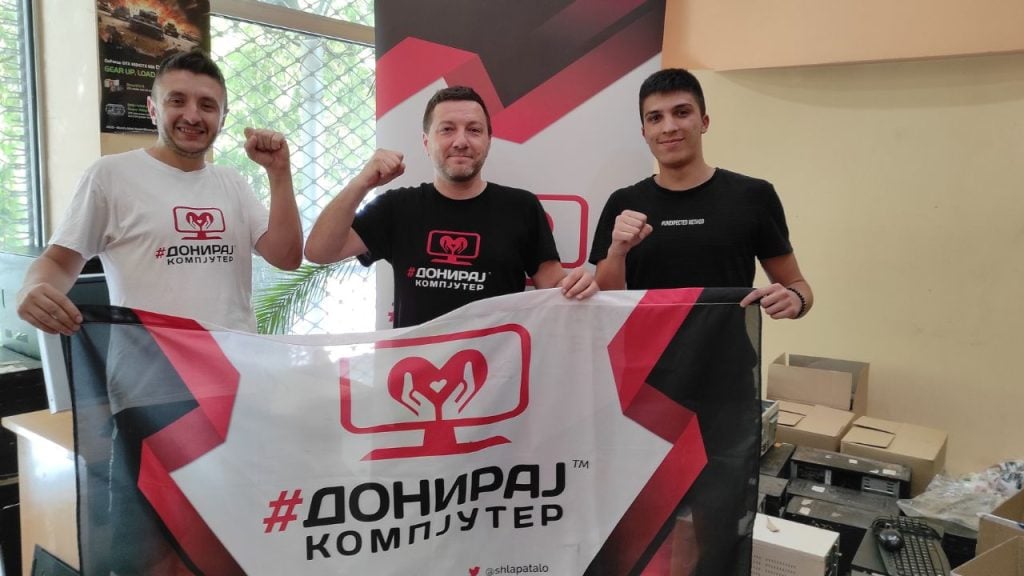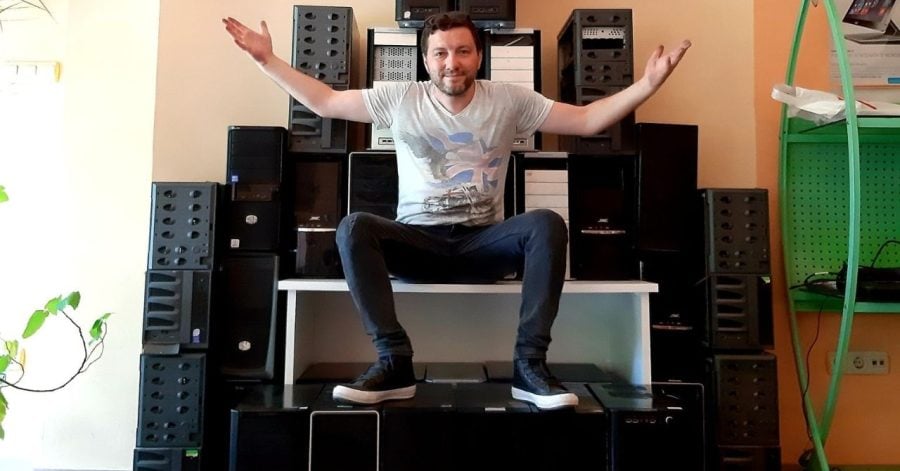Six years ago, while Borce Stamenov was repairing and servicing computers at a local IT company in his home town of Kavadarci, he came across an unusual request. A woman with two children couldn’t afford a computer, so she asked him if he could help them out.
It was then and there where Stamenov got inspired for his life mission as he says – donating computers to those in need, and becoming a sort of modern day Robin Hood in North Macedonia.
However, unlike the actual Robin Hood, 44-year-old Stamenov did not have to steal from the rich to accomplish his goal.
“At the IT company, customers often leave computers that they no longer use. Refurbishment companies also leave what they don’t need. In that, I saw an opportunity that could be used to improve the lives of those who, well, were not so fortunate,” Stamenov tells The Recursive in an interview.
Stamenov named the initiative “Donate a Computer”, and in a very short period of time, the word got out through the rest of the country.

“I created a Facebook fan page called “Donate a Computer”, and thanks to my friends who started to spread the word, we gained a solid following. Already in the first months there were about 50 requests for donations through various channels. Some called in person, some of them did through their relatives, and so on,” Stamenov, who now works as an IT support specialist, recalls.
Now, “Donate a Computer” is in its seventh year, with more than 1,700 donated computers so far. For Stamenov, “Donate a Computer” is much more than a regular project or a simple initiative.
““Donate a Computer” is not a regular project. This is very important to note, since projects are temporary and funded work. We are not temporary and we are volunteers who have understood their role in this society. We want to leave a mark and to show that no one should wait for the state or the authorities to do something. There are groups of people who do not have the luxury of waiting, especially when it comes to quality education for their children,” Stamenov explains.
With every computer donation, as Stamenov puts it, there is another family in North Macedonia that won’t end up on social welfare when their child grows up.
A social project that keeps on growing
Stamenov’s efforts have been very well received by the Macedonian public, with “Donate a Computer” forming several strategic partnerships. Companies such as local electronic store Neptun, logistic service company Eco Logistik, local IT company Bidat Informatica, Algoritam Private High School and the digital marketing academy Brainster are all supporting the initiative one way or another.
However, the same cannot be said for the Macedonian public institutions, Stamenov says.
“It seems that we are at a standstill with the state institutions. We asked to buy a vehicle or apply for a vehicle donation from the Asset Forfeiture Agency, but didn’t get any response. We applied for funding with the Fund for Innovation and Technology Development (FITD) and they told us that we weren’t innovative enough. While this is true, we just thought they could have made an exception when there is an essential social responsibility in question, especially in the part with digital inclusion. But we won’t give up on anything or anyone – we are building trust and a reputation of honesty and solidarity,” Stamenov tells The Recursive.

And such hurdles haven’t stopped “Donate a Computer”, which now consists of two teams – a core team of 10 people as volunteers, including experts from different professions. The first one takes care of logistics, computer diagnostics and repair, delivery, and verification of donation applications, based in Kavadarci. The other one deals with communication, collecting donations, project applications and social media, based in Skopje.
While “Donate a Computer” also has the potential to develop into a regional initiative for Stamenov now the main focus remains on North Macedonia.
“It took us six years to reach 1,733 computers and there are 38,000 more waiting. First we plan on finishing all of that – we have been developing self-sustainability strategies to survive and be able to continue our mission on our own. Regionally, we will spread our experiences and way of working so that it reaches everywhere it can,” Stamenov says.
Inspiring hope and fighting for equal quality of education
For Stamenov, “Donate a Computer” also has an altruistic goal that aims to increase the quality of education in the country. And for that goal, the Macedonian society needs more people who are willing to help without asking for anything in return.Additionally, in a country where only around 30 percent of the population are digitally literate, such help is of great benefit for everybody.
“Imagine that there are 40,000 children in danger of never learning to work with a computer… Where will those children end up tomorrow, with what kind of employment and how much income are they going to have? And precisely those same children, with a little help, can become productive citizens. That is our contribution to this society – the fight for equal quality of education for all children, and the fight for digital inclusion,” Stamenov says.
For him, the initiative has also transformed his own life, making him realize what is important in life and how everyone can have an impact in society by doing the right things.
“Despite the fact that “Donate a Computer” is my baby, there are many people working in it who are and always will be on the same level as me. The initiative changed me completely, and changed me for the better. I have never felt as good in my life as I do now. I have never been more useful than now, and I can say that at 44 I never felt more alive than now,” Stamenov concludes.








